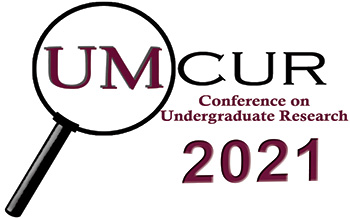Project Type
Presentation
Faculty Mentor’s Full Name
Matthew Semanoff
Faculty Mentor’s Department
World Languages and Cultures
Abstract / Artist's Statement
The Historical Relationship Between Classics and Fascism
This paper, and its corresponding presentation, will serve to explore the most prominent connections between the political ideology of Fascism and the academic field of Classics. Greco-Roman imagery and symbolism have been prominent in modern displays of extremist activity in the United States and throughout the world, reinvigorating the need to understand the historical connection between Classics and Fascism. This contribution seeks to understand why Fascists, both throughout history and into day, have been so drawn to Classics.
After a brief summary of the history of Classical scholarship, and specifically the ways in which it shaped national identities in the nation-states of early modern Europe, particular attention will be given to the iterations of Fascism that came to power in Italy under Mussolini and Germany under the Nazis, and the obsession of those regimes with the Ancient Romans and Greeks, respectively.
This research was conducted using library resources and other visual references found online, and through weekly consultations with a faculty mentor.
Themes to be explored will include language, imagery, history, and art. The paper will, in conclusion, make light of the continued obsession with Classics demonstrated by far-right political actors throughout time and into the year 2021, and furthermore offer suggestions for ways in which Classics can divorce itself from its historical connection with Fascism. Attention will also be given to the interdisciplinary nature of Classics, and the ways in which other fields which were prominent in Fascist or otherwise malevolent regimes (such as Anthropology) have been successful in renouncing their connections thereto.
Category
Humanities
The Historical Relationship Between Classics and Fascism
The Historical Relationship Between Classics and Fascism
This paper, and its corresponding presentation, will serve to explore the most prominent connections between the political ideology of Fascism and the academic field of Classics. Greco-Roman imagery and symbolism have been prominent in modern displays of extremist activity in the United States and throughout the world, reinvigorating the need to understand the historical connection between Classics and Fascism. This contribution seeks to understand why Fascists, both throughout history and into day, have been so drawn to Classics.
After a brief summary of the history of Classical scholarship, and specifically the ways in which it shaped national identities in the nation-states of early modern Europe, particular attention will be given to the iterations of Fascism that came to power in Italy under Mussolini and Germany under the Nazis, and the obsession of those regimes with the Ancient Romans and Greeks, respectively.
This research was conducted using library resources and other visual references found online, and through weekly consultations with a faculty mentor.
Themes to be explored will include language, imagery, history, and art. The paper will, in conclusion, make light of the continued obsession with Classics demonstrated by far-right political actors throughout time and into the year 2021, and furthermore offer suggestions for ways in which Classics can divorce itself from its historical connection with Fascism. Attention will also be given to the interdisciplinary nature of Classics, and the ways in which other fields which were prominent in Fascist or otherwise malevolent regimes (such as Anthropology) have been successful in renouncing their connections thereto.
